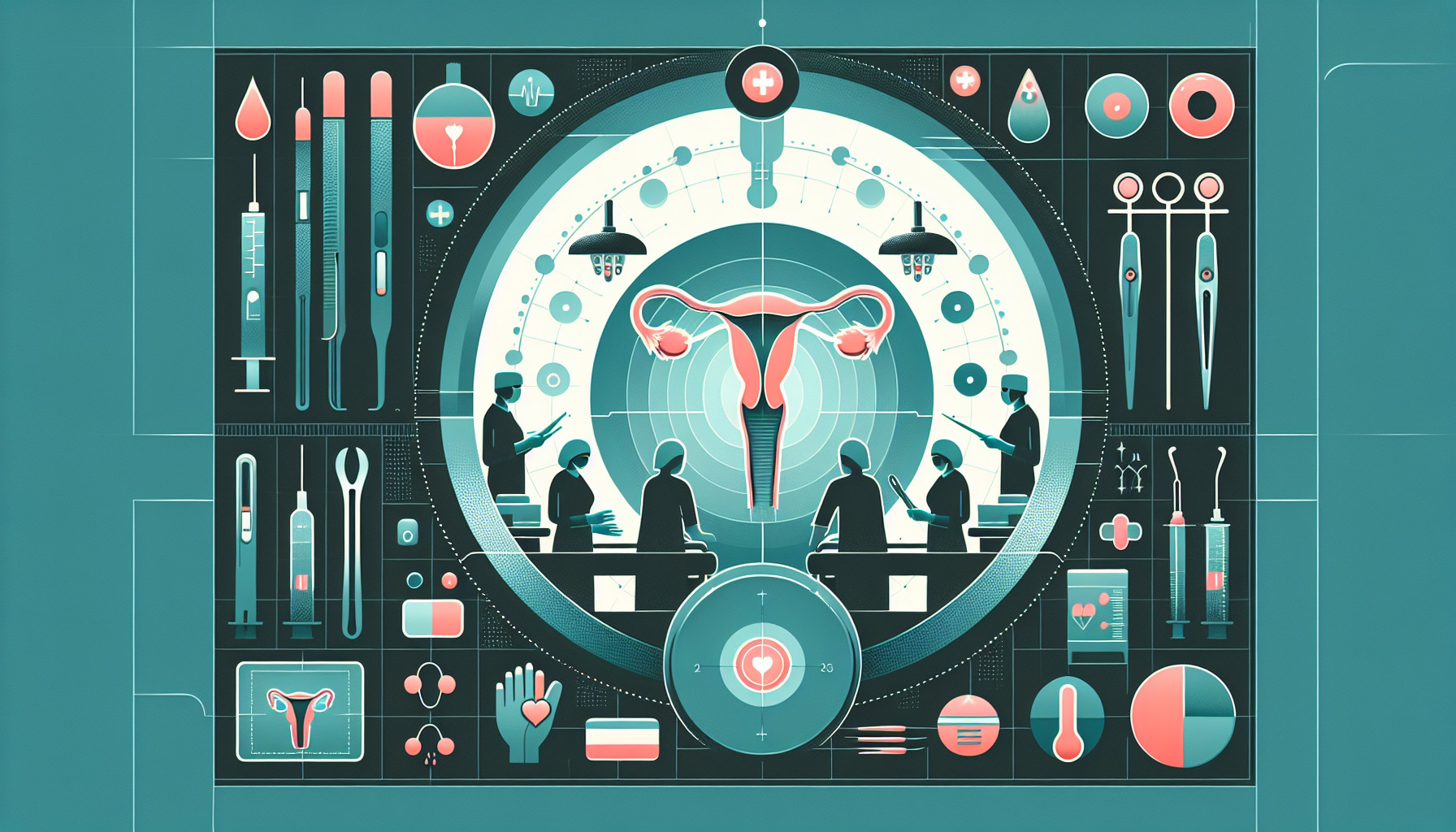Our Summary
This research paper is trying to determine the best time for a woman to get pregnant after having a myomectomy, which is a surgery to remove fibroids from the uterus. There isn’t a clear guideline on this yet. The researchers looked at different types of studies and articles, and they only included ones where the surgery was done through the vagina, a large cut in the abdomen, a small cut and a camera (laparoscopy), or a robot-assisted surgery.
They found that out of 3852 women who had the surgery and wanted to get pregnant, 2889 did get pregnant, leading to 3000 pregnancies (since some women had more than one pregnancy) and 2097 babies born. On average, it took about 17.6 months for these women to get pregnant after the surgery.
The researchers also found that among 1016 women, about a third were told to wait 3 to 6 months before trying to get pregnant and another third were told to wait 6 to 12 months. There were 70 cases where the uterus ruptured during pregnancy, and this usually happened around the 31st week of pregnancy. However, they found no clear link between when this happened and how long the woman had waited to get pregnant after the surgery.
In conclusion, the researchers say that there isn’t enough information to give a definite recommendation on how long to wait before trying to get pregnant after a myomectomy.
FAQs
- What is the optimal time interval between myomectomy and pregnancy?
- What is the chance of uterine rupture after myomectomy?
- Is there a relationship between the time interval from myomectomy to conception and the gestational age at the event of uterine rupture?
Doctor’s Tip
A doctor might advise a patient who has undergone myomectomy to wait a certain amount of time before attempting to conceive, typically between 3-12 months. This can help ensure proper healing and reduce the risk of complications such as uterine rupture during pregnancy. However, the optimal time interval between myomectomy and pregnancy is still unclear, so it is important to discuss individual circumstances with your healthcare provider.
Suitable For
Patients who are typically recommended myomectomy include those with symptomatic fibroids causing heavy menstrual bleeding, pelvic pain, or pressure symptoms. Myomectomy may also be recommended for patients who want to preserve their fertility and have not been successful in conceiving due to the presence of fibroids. Additionally, patients who have had recurrent miscarriages or infertility due to fibroids may also be recommended myomectomy as a treatment option.
Timeline
Before myomectomy:
- Patient may experience symptoms such as heavy menstrual bleeding, pelvic pain, and pressure
- Patient undergoes diagnostic tests such as ultrasound or MRI to confirm the presence of fibroids
- Patient and healthcare provider discuss treatment options, including myomectomy
- Patient undergoes pre-operative evaluations and preparation for surgery
After myomectomy:
- Patient experiences post-operative pain and discomfort, which is managed with pain medication
- Patient is monitored for complications such as infection or excessive bleeding
- Patient may stay in the hospital for a few days or go home the same day, depending on the type of surgery
- Patient follows post-operative care instructions, including rest, diet, and activity restrictions
- Patient may need to wait a certain amount of time before trying to conceive, as advised by their healthcare provider
- Patient may experience successful pregnancy after myomectomy, with regular monitoring for any complications such as uterine rupture.
What to Ask Your Doctor
- What is the optimal time interval between myomectomy and attempting to conceive?
- Are there any specific risks or complications associated with getting pregnant after myomectomy?
- Will my fertility be affected by the myomectomy procedure?
- Are there any specific precautions I should take during pregnancy after having a myomectomy?
- How will my previous myomectomy surgery impact my pregnancy and delivery?
- Are there any lifestyle changes or medical treatments I should consider before trying to conceive after myomectomy?
- What are the chances of uterine rupture during pregnancy after myomectomy?
- Are there any additional tests or monitoring that should be done during pregnancy after myomectomy?
- Is there a recommended timeline for follow-up appointments or consultations during pregnancy after myomectomy?
- Are there any specific factors or conditions that may impact my ability to conceive or carry a pregnancy after myomectomy?
Reference
Authors: Margueritte F, Adam C, Fauconnier A, Gauthier T. Journal: Reprod Biomed Online. 2021 Sep;43(3):543-552. doi: 10.1016/j.rbmo.2021.05.016. Epub 2021 May 30. PMID: 34353724
